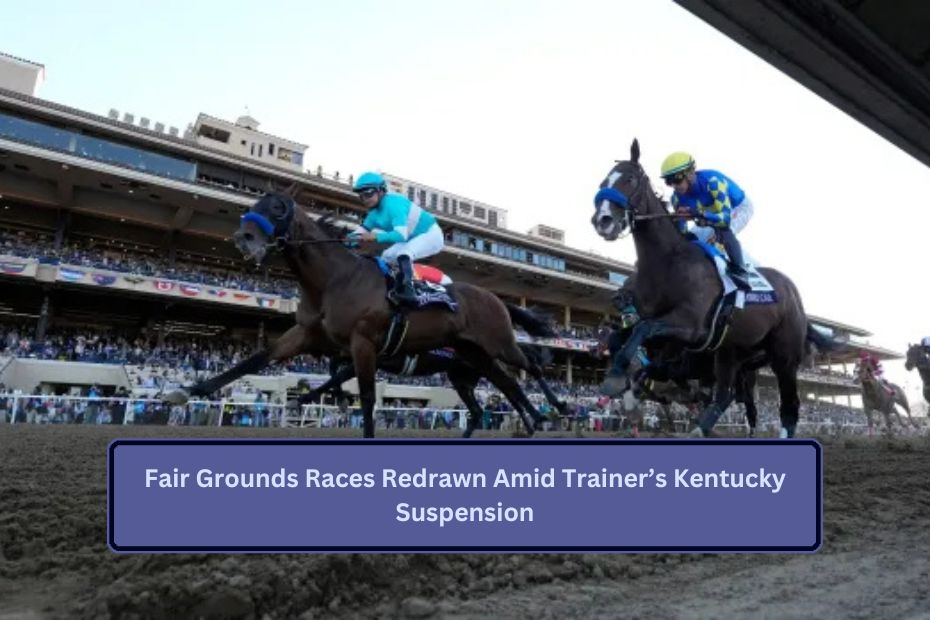In the world of horse racing, controversy often intertwines with tradition. A recent event at Fair Grounds Race Course exemplifies this, involving trainer Juan Muñoz Canó, who is under indefinite suspension in Kentucky. Despite his suspension, Fair Grounds redrew Sunday’s races to include his horses, leading to widespread discussion. Let’s break it down.
Why the Races Were Redrawn
Fair Grounds initially denied entries for two horses trained by Juan Muñoz Canó, citing his suspension by the Kentucky Horse Racing and Gaming Corporation (KHRGC). However, the Louisiana Racing Commission (LRC) stepped in, ordering the races to be redrawn to include his horses.
The horses in question—6-year-old gelding Supremely and 11-year-old gelding Shortlist—were added to a $15,000 claiming sprint and a $5,000 claiming route, respectively. Neither race had full fields, so no other entries were displaced.
Despite their inclusion, a statement from Churchill Downs Inc. clarified that Muñoz Canó’s horses will ultimately be scratched, allowing him to focus on his ongoing regulatory case.
Background on Juan Muñoz Canó’s Suspension
Muñoz Canó’s troubles began after his 2-year-old filly La Bukana suffered a fatal breakdown in an October race at Churchill Downs. Post-mortem testing revealed the presence of clenbuterol, a banned substance.
In December, the Horseracing Integrity & Welfare Unit (HIWU) flagged Muñoz Canó for this violation. By January 2, the KHRGC suspended him indefinitely, citing conduct harmful to horse racing. Under federal Horseracing Integrity and Safety Authority (HISA) rules, Muñoz Canó has the right to request further testing, but the case remains unresolved.
Louisiana’s Unique Position in Racing Regulations
This case highlights the complexities of horse racing regulations in the United States. Unlike Kentucky, Louisiana operates outside HISA’s jurisdiction, due to legal challenges questioning the federal body’s constitutionality. This independence sometimes leads to tension, as seen when Louisiana loosened medication regulations in 2023.
Fair Grounds, owned by Churchill Downs Inc., had previously threatened to cancel key races unless stricter medication rules were reinstated. The LRC eventually complied, but the strained relationship persists, underscored by cases like Muñoz Canó’s.
What’s Next for Muñoz Canó?
Since his suspension, Muñoz Canó has continued to race in Louisiana, where the LRC has allowed him to operate. This weekend, aside from the now-scratched entries at Fair Grounds, he has multiple horses entered at Delta Downs.
While jurisdictions often honor suspensions across state lines, Kentucky’s decision to act before HISA’s findings created an unusual precedent. This raises questions about how future cases might unfold in states challenging federal oversight.
The redraw of races at Fair Grounds underscores the complexities of regulating horse racing across multiple jurisdictions. While the decision to include Muñoz Canó’s horses was ultimately symbolic, it shines a light on the tension between state and federal authorities in the sport.
This case is a reminder of the ongoing challenges in maintaining integrity and consistency in horse racing. As Muñoz Canó’s case continues, the industry will undoubtedly watch closely, as its outcome could influence future decisions on trainer accountability and regulatory authority.
Visit Home

